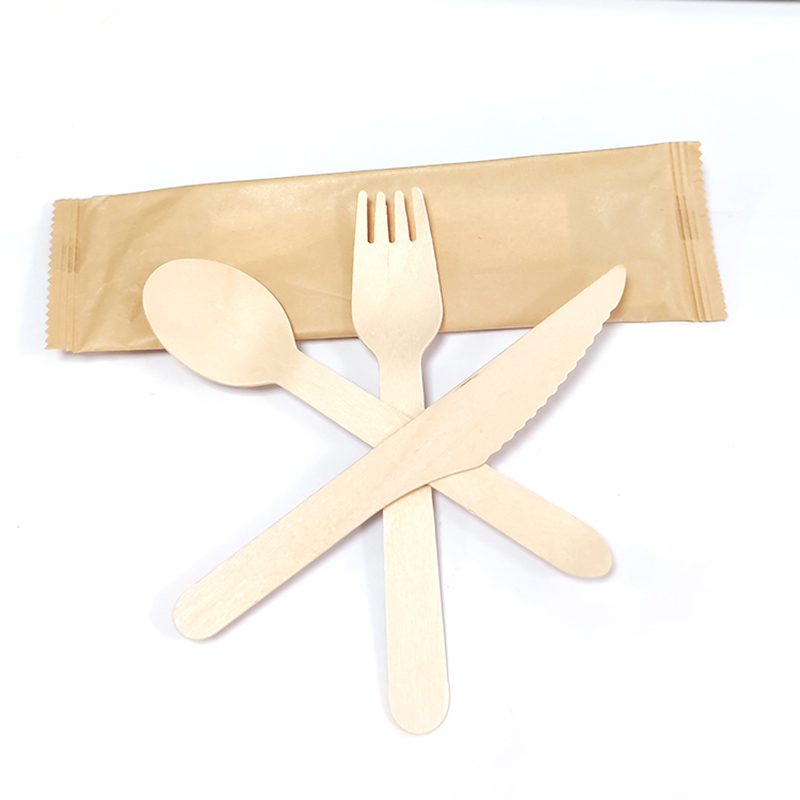How to Dispose of Wooden Cutlery
How to Dispose of Wooden Cutlery
While many people think that wooden cutlery is not compostable, it is possible to recycle wood pieces, such as teaspoons. The reason is that these items are biodegradable. If they can't be recycled, they should be disposed of in landfills. However, this is a wasteful process. When disposing of wood products, the first step is to find a place where they can be composted. In Australia, the Materials Recovery Facility is the best place to take them.

Once you have used your wooden serving pieces and spoons, you should put them in the composter or a bag. These are ideal for use with your kitchen compost bin. Alternatively, you can take your wooden utensils to a Household Waste Recycling Centre. If you've got a large enough quantity of wooden cutlery, you can even make your own composting system.
If you're wondering how to dispose of wooden utensils, you can visit a recycling center. Metal cutlery and spoons can be put into curbside recycling bins. When disposing of wooden spoons or serving pieces, you should rinse them out and empty them. Do not put them in the dishwasher. They may become a breeding ground for bacteria. To avoid these problems, make sure they are oiled.
Wooden spoons, forks, and knives cannot be thrown away. They can absorb the smells of food. The best way to recycle your wooden utensils is to wash them in hot soapy water. You can also take them to a Household Waste Recycling Centre if they are made of recyclable materials. If you want to make compost, use your kitchen compost bin. Your wooden serving pieces and spoons can also go into a composting system if you're willing to spend some money on it.
While there are several ways to recycle wooden cutlery, the best option is to dispose of them properly. While you should not throw away your wooden utensils in the dishwasher, you can dispose of them in your local household waste recycling center. You should ensure that they are completely empty before putting them in the bin. You should also keep them oiled to avoid bacterial growth. Otherwise, they will absorb the smell of the food and should not be recycled.
When discarded, wooden spoons and serving pieces should be oiled or dried to prevent bacteria from growing. Moreover, they aren't compostable and should never be placed in the compost bin. Instead, they should be used in a composting system to reduce their environmental impact. Besides composting, wooden cutlery can also be recycled. This is a very helpful option if you want to recycle your cutlery.
Wooden cutting boards and spoons should be oiled before disposal. The moisture can also cause the wood to split. If the wooden tools are too dry, they could absorb the smell of the food. This can also affect the wood's quality. For this reason, it's best to remove oil-coated serving pieces and spoons from the fridge. If these are in good condition, they can be recycled easily.
Wooden cutting boards and spoons are not compostable. They're not compostable and cannot be put into the curbside compost bins. Luckily, there are some ways to recycle wooden utensils. One way to do this is to compost the wooden utensils and spoons yourself. The Canberra Environment Centre can also sell you a homemade composting system. These systems can be a great option for home use and help you to compost your wooden utensils.
If you prefer to compost the wooden spoons, you can also compost the wood. The kerbside composting process is intended to separate aluminum and steel cans. For wooden spoons and serving pieces, the kerbside process is more difficult. The plastic spoons should be rinsed to remove food odors. If a piece of wooden cutlery breaks or has a crack, oil it to avoid bacteria from ruining the wood.







